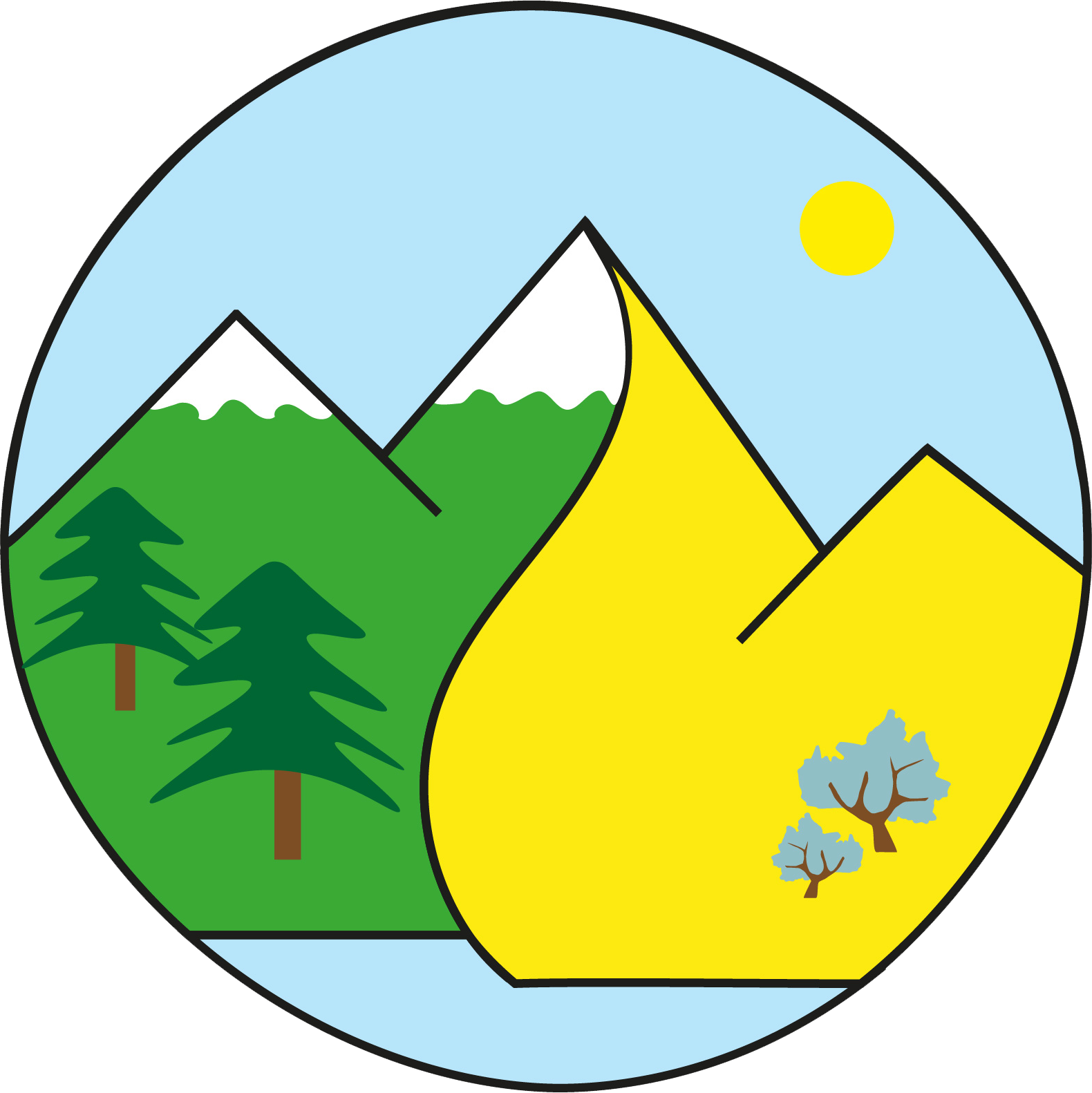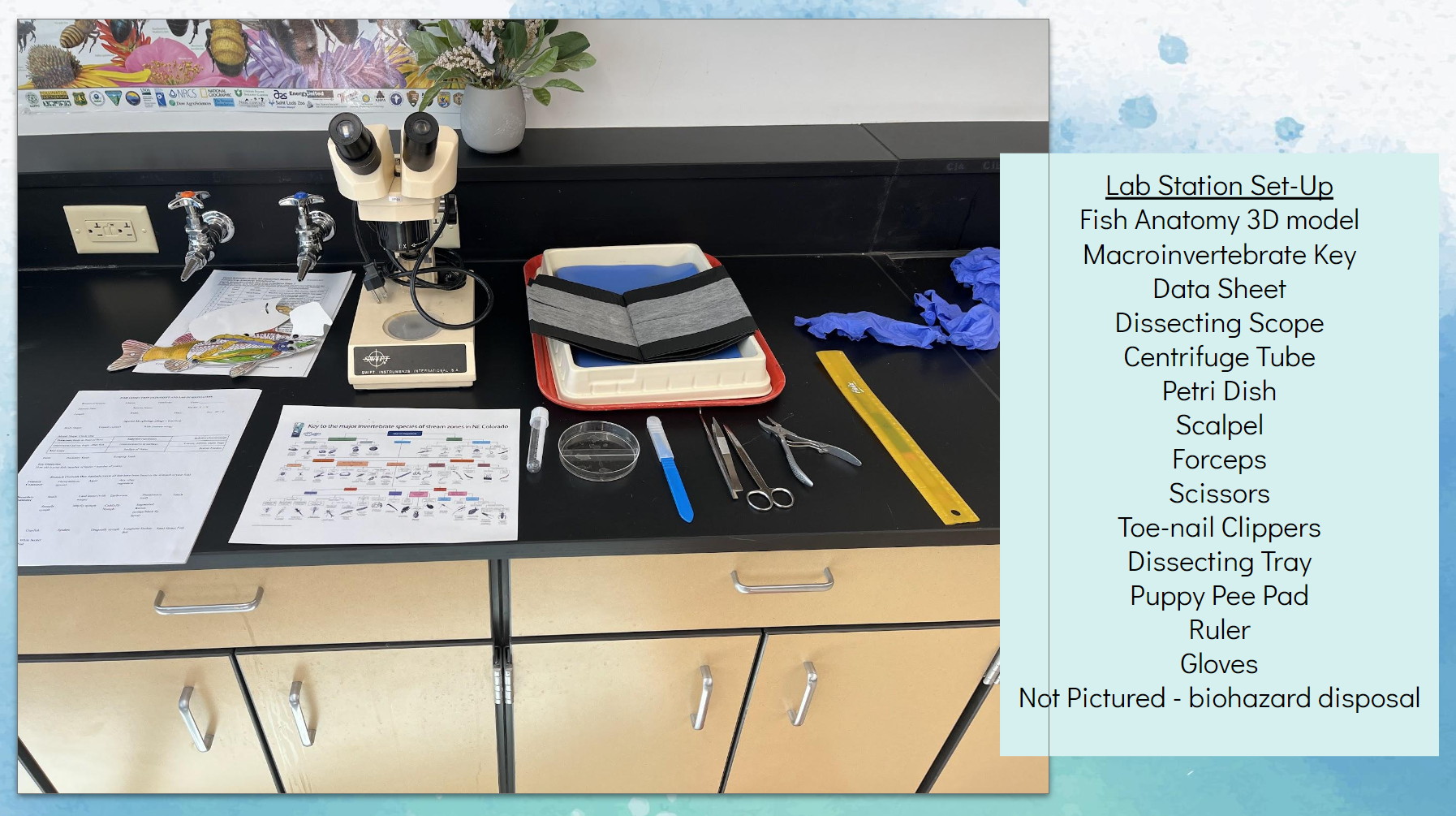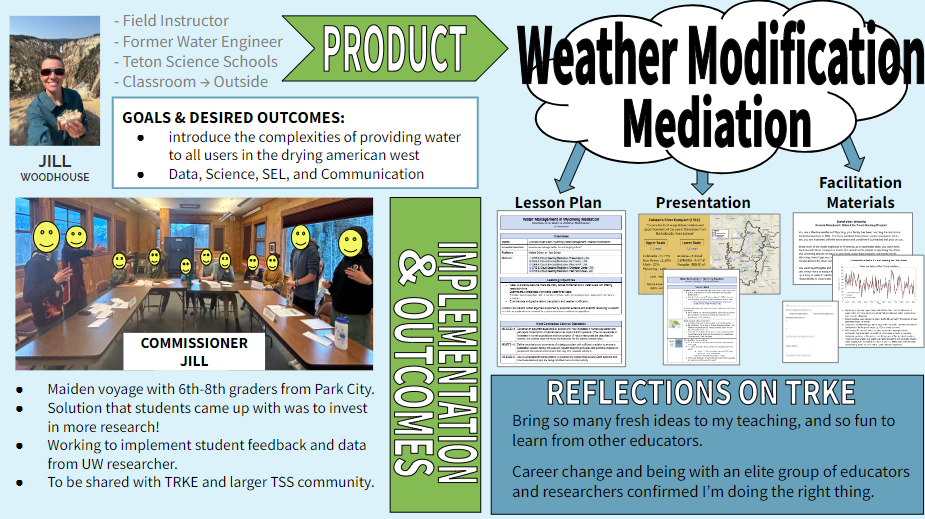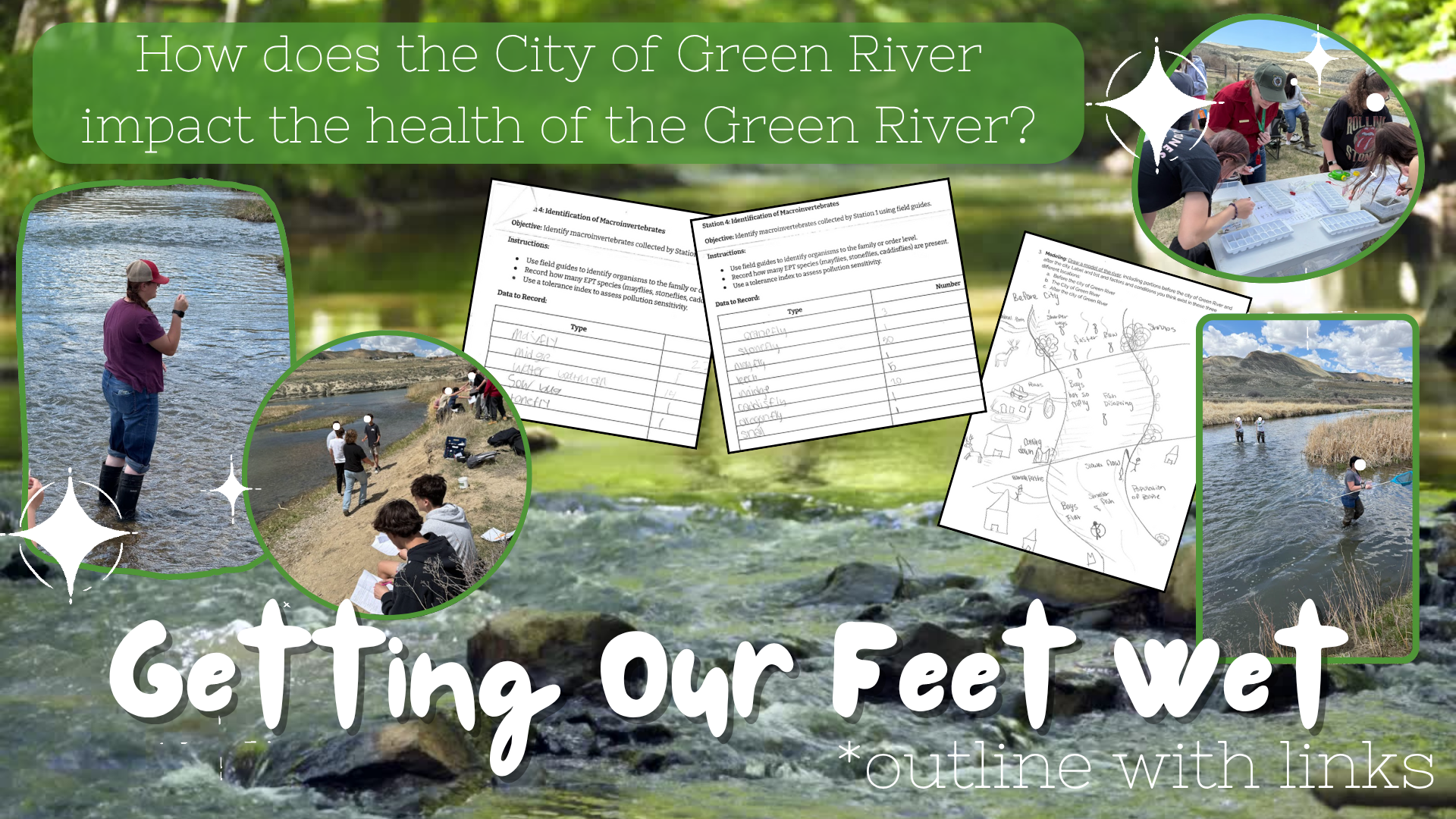Overview
Jenny Edwards, a high school science teacher, created this unit to engage students in analyzing biotic and abiotic interactions in aquatic ecosystems using real-world data. By comparing Alcova and Pathfinder Reservoirs, students investigate how environmental differences influence biodiversity, food webs and ecosystem dynamics. Through the integration of online datasets, fish dissections, and stable isotope analysis, students examine how human activities, such as fish stocking and resource management, affect aquatic ecosystems.
Jenny's overview of this fish isotope unit is linked HERE. Scroll down to the Resources & Links section of this page to check out her specific materials.
Goals
- Strengthen data literacy through graphing, interpretation and evidence-based analysis
- Engage students in authentic science investigations using real-world data
- Explore how abiotic factors (water quality, temperature, depth.) shape biotic communities (fish, macroinvertebrates, plants)
- Use stable isotope data to analyze trophic relationships and build food webs
- Evaluate how human interventions, such as fish stocking and harvest limits, affect ecosystem sustainability
Implementation & Outcomes
- Implemented with 9th-12th grade students
- Students compared abiotic data from Alcova and Pathfinder Reservoirs to predict how environmental differences influence biodiversity
- Conducted fish dissections and analyzed stable isotope data to build food webs and fish trophic levels
- Concluded with a student-led town hall debate on walleye catch limits based on data they collected
- Students were noticeably more engaged and used complex vocabulary along with evidence-based data in their discussions
- Future plans include revising lesson sequencing, improving access to student friendly fish data, refining isotope graphing tools, and developing a shared fish stomach content database for future comparisons
Resources & Links
- Fish Pre-Dissection Stations
- Fish Dissection Lab Directions, Steps, Images, Etc.
- Fish Dissection Datasheet and Lab Investigation
- Pathfinder Fish Species
- Build Alcova and Pathfinder Food Webs
- Using Isotopes to Track Food Web Relationships
- Alcova, Pathfinder, Jackson Lake Raw Isotope Data
- Visualizing Isotope Data
- Walleye Townhall Meeting Activity
Contact for More Information
For more details about this program or to learn how to incorporate similar activities in your school, please reach out to the TRKE program coordinators at smtcpd@uwyo.edu.




